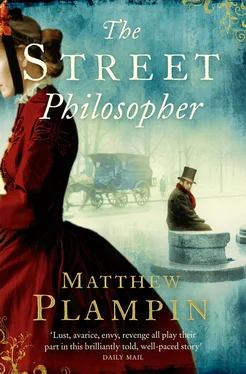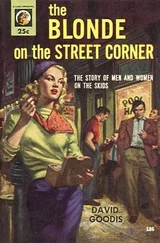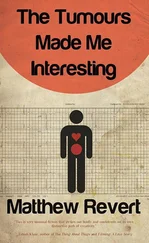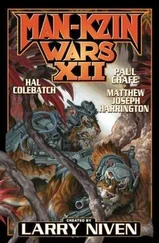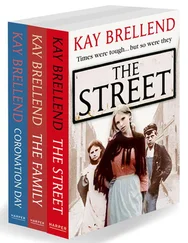The golden opera glasses, to her frustration, offered only a partial view of the battlefield. She could survey the allied armies, and even follow the winding white roads that ran over the plain before them, through the farms, and the pretty little village on the river’s edge. But the hills beyond, and the Russians upon them, were only a brown blur. Cursing softly in French, she turned the small focusing wheel as far as it would go in both directions, pressing her forefinger against the tiny teeth that had been cut into it. It moved smoothly, but no image could be found.
Spotting her difficulty, an aide-de-camp from Raglan’s staff came down the hill to her side. He was in his early twenties, slightly built, and dressed in a Hussar’s uniform, his round, freckled face half hidden by a busby at least a size too large for him. Introducing himself as Captain Lichfield, he insisted that she borrow his army-issue telescope. ‘And may I also suggest, ma’am, that you employ it to take a look at the nobles of Sebastopol, up in their pavilion near the tallest peak, having a jolly old picnic?’
Madeleine smiled warmly. She knew Lichfield’s type well: the gauche young officer, so eager to please. ‘How kind of you, Captain.’ She extended the telescope, the sections sliding neatly into place. ‘They watch the battle for amusement, do they, these nobles?’
‘Oh yes, ma’am. A very popular Russian pastime, I’m told. I daresay they must be expecting to triumph.’ Lichfield’s uneasy chuckle was cut short by a terse summons from the top of the hill, calling him back to his duties. He bowed, and was gone.
Madeleine lifted the telescope up to her right eye; and there, under a striped canvas awning close to the summit of the Heights, was a gaily costumed group who appeared to be having something of a party. She could even make out the champagne flutes in their hands, and the laughter on their faces. It was a celebration, mounted in clear expectation of victory–a Russian victory.
Fearfully, Madeleine lowered the telescope a couple of inches. She suddenly found herself staring into a battery. The blunt brass snouts of the cannon poked through the earthwork defences. Behind them stood line upon line of grey-coated infantry, their muskets at the ready. They did not look half-starved, or corrupted, or disorganised. Indeed, they seemed to have much the same sense of grim, regimented purpose about them as the Allied soldiers.
Madeleine’s vague alarm turned rapidly to tight, hot panic. She had to find Richard. She had to warn him, and convince him to come back with her, back to safety. Searching for civilians among the redcoats, she settled the telescope upon a series of black and brown backs, groaning aloud with each fresh disappointment. It is hopeless, she thought, tears stinging her eyes.
She considered jumping to her feet and running down the hill, but reason held her in place. Such action would give her away completely. It would be obvious that it was not Nathaniel she was looking for. And this, in turn, would give him proof of what he already suspected. Madeleine knew only too well what would happen then. She would be cast aside, reviled by society. That in itself did not frighten her. Life as an outcast with Richard would be better than any kind of life with Nathaniel; but they must be prepared. The war would be a short one, Richard said. They must be patient.
Calming herself, Madeleine wiped her eyes, cleared her throat, and then looked down at her husband through the telescope. He had drawn his sword a few inches from its scabbard, and was twisting the points of that wretched moustache while looking at his reflection in the blade. How she hated him. She still ached dreadfully from the reprisal he had inflicted two days previously, following his humiliation by Richard in front of his men. He had forced himself upon her with terrifying violence, spitting foul words about how he would ruin her for the Irishman, and beat her all out of shape; afterwards, as she lay bleeding and bruised on the floor of their tent, it had felt as if he’d succeeded. As always, Nathaniel had been careful not to mark her face, neck or forearms. Madeleine’s appearance, once she was dressed, gave no indication of what had been done to her. This was her marriage–an unspeakably cruel ordeal, to which she had been consigned by a weak father flattered to have been approached by a well-born Englishman.
The notion sprung into Madeleine’s mind, seemingly unbidden, that the coming battle might well provide the solution to all her troubles. Nathaniel was a conspicuous figure indeed, sure to attract the attention of those Russian riflemen. She gasped in shock, never having suspected that she was capable of such thrillingly brutal calculation.
Then she spied Richard, sauntering past the base of her hill towards the 99th. He was grinning broadly, a cigar stuck in his mouth, his faded jacket flapping open in the mild autumnal breeze; and she knew at once that it was worth enduring Nathaniel to be near him. Here at last was a man who was not in the least frightened or intimidated by her husband, who could see past the uniform, and the family name, and the legion of menacing lackeys to the worthless wretch cowering beneath. Her Richard was a truly brave soul, a man of robust warmth and plain-speaking passion. He would rescue her.
Madeleine leapt up excitedly, waving and calling out his name, all thoughts of Nathaniel gone, and any sense of discretion momentarily forgotten. But he carried on his way with no sign of having heard.
Kitson and Styles sat together on a low dry-stone wall, the Courier team’s designated meeting place, a short distance behind the First Division. Both had spent a sleepless night listening to soldiers’ songs and the distant barks of hungry dogs; and then a hot, tiresome morning watching the armies perform their countless preparations. The thought of what was to occur that afternoon, however, made any fatigue impossible. Both stared out at the valley before them with raw-eyed attentiveness.
Kitson attempted to keep them calm with light-hearted conversation. Discovering that they shared an interest in the French realist school, he was telling the story of how he had managed to meet Monsieur Courbet in Paris eighteen months before.
‘We finished up in a gaming house close to the Sacré Coeur,’ he said, ‘where the great man proved himself something of a card player. He took all my money, then my hat, and finally my boots. I’m certain that he would have taken more, but I slipped from my chair to the floor, quite drunk, and could not be stirred to play another hand.’
Styles’ laugh was a little too loud. His gaze did not stray from the valley for a second; his legs twitched with a surfeit of nervous energy.
As usual, Cracknell managed to catch them entirely by surprise. He threw himself to the ground at the base of the wall, its rocks shifting slightly with the impact. ‘I’ve been over with some French officers,’ he declared gleefully, ‘talking of this and that. Drinking their coffee. Bloody good it was too–some leagues beyond the muck brewed up by our boys. But then, in my experience, all things French have a certain quality to them. Wouldn’t you agree, Styles?’
Kitson checked his pocketbook and writing materials, wishing that Cracknell would refrain from his teasing for that one day at least. Styles looked away, seeming to ignore him; but Kitson could tell that a store of resentment was being built up, one that would eventually lead to retaliation.
But he could not dwell on this now. For all his annoyance at Cracknell’s continued harrying of the illustrator, he was relieved to see that the senior correspondent was confident–exuberant, even–at the prospect of the coming battle. As the inevitability of combat had slowly impressed itself upon him, Kitson had felt a keen desire for guidance. After months of delay, he was to see his first major action as a war correspondent for the London Courier –yet he found that he had not the least idea how to perform this task.
Читать дальше
